Back to writing after a long hiatus! (Thanks to Anna for inspiring me to write again.)
Motivation
Intermittent fasting (IF) is one of the best things you can do for your body, for longevity, improved cognitive, insulin sensitivity etc. (Gudden 2021, Huberman Lab) I’m not going to do another review here because it’s so well known & discussed already. What I really want to review is how IF would impact growth.
I’ve already been practicing IF regularly since 2018, normally the 16:8 protocol and sometimes the 20:4. But 7 months ago, I decided to start lifting weights for muscle hypertrophy, I decided I’m going to stop being that weak and skinny vegan. I haven’t seen a single body builder who IF while they bulked, and the general sentiment while you bulked is to eat as much as possible. So the question of the day is: will IF help, impede or doesn’t do anything for a bulk?
Muscle hypertrophy here is defined by rate of muscle protein synthesis (MPS) > muscle protein breakdown (MPB) for myofibrillar and sarcoplasmic (Moore 2009, Gwin 2020). It is the net MPS > MPB that results in muscle hypertrophy.
How IF could help with your bulk
- IF is one of the most potent stimuli of human growth hormone (HGH), which promotes growth and maintenance of lean body mass and lipolysis (Kim 2021, Horne 2015, Hollstein 2022). It’s used by body builders and powerlifters in addition to anabolic steroids for achieving an ideal body composition, low body fat and high muscle mass.
- IF also improves insulin sensitivity (Jørgensen 2021, Yuan 2022), meaning the effect of 1 unit of insulin on your tissue is more powerful than someone who is insulin resistant. Since insulin is a strong anabolic hormone, it should promote muscle cell proliferations.
A study involving 22 women showed that IF reduced muscle damage markers (Dannecker 2013), but I’m not too convinced by just one study especially when some of the markers were subjective (exercise behavior questionnaire, muscle pain ratings, pain thresholds, perceived force exertions). I’m still linking it here because I appreciate the fact that they recruited female subject and hence the results are more applicable to me than male-based studies, which seems to be the majority!
How IF could impede your bulk
(Sticking to just the physiology here, we’ll dive into the logistics later). Being in the fasted state triggers the catabolic cascade in muscle cells (Sanvictores 2018), along with fat loss! While you’re in the fasted state, the balance between muscle protein synthesis (MPS) vs muscle protein breakdown (MPB) is tiled towards the latter (Aragon 2022, Williamson 2021). Therefore, you’re guaranteed to see muscle breakdowns during prolonged fasting (>48hrs), but I know nobody who does that IRL. IF is so well known for it’s weight loss effectiveness, you can’t expect your body to bulk up that much. MPS is mainly stimulated by extracellular availability of amino acids in a dose response manner and MPB is primarily modulated negatively by insulin, a permissive effect required for MPS (Bohé 2003). The logic is simple here, insulin stops your muscle cells from engaging in the MPB cascade, and when you fast, you have no insulin, so you’re going to have MPB. In extreme fasts, the body begins autophagy, meaning it starts to oxidize some of the myofibrillar and sarcoplasmic protein for energy, but this doesn’t apply to IF.
The experiments
There isn’t a lack of human experiments trying to look at how IF impacts muscle hypertrophy or lean mass, so I’ll cite some of that here. This systematic review showed that fasting doesn’t reduce lean body mass and the body mass that was lost during the study period was mostly fat (Keenan 2020). So IF really does help with body recompositioning, you can keep your muscles while you loose those fat, provided that you keep adequate resistance stimulation and protein intake (Tinsley 2015). There’s also a small study that shows IF together with HIIT helped increased lean mass and reduced fat in obese women (Batitucci 2022), but, honestly, if you’re obese, anything and everything helps, fasting, exercise, caloric restriction etc. Best if you could do all of that. Consistency & program adherence is the key if you’re in this situation. Another systematic review by Ashtary-Larky 2021 concluded that IF has minimal effect on lean mass while cutting fat mass. I want to quote a specific RCT here because it’s very applicable to me, and it’s the effect of IF on trained females with or without β-hydroxy β-methylbutyrate (HMB) supplementation Tinsley 2019. While I wasn’t interested in the HMB, this 4-week study showed that muscle thickness measured by ultrasonography was significantly higher in the control diet group for knee extensor, and surprisingly the IF group with HMB showed even more muscle thickness than the control diet group despite being on IF. So I’m definitely looking into this compound👀
There are many more studies that look into the effect of IF on preserving muscle mass, but not a lot on hypertrophy. But it’s reasonble to believe that if your main goal is hypertrophy, you shouldn’t be doing IF, because you want as much of the anabolic effect of insulin as possible.
This figure from (Williamson & Moore 2021) nicely summarized the anabolic effects of eating multiple times a day. Panel (A) is a whole day fasting, (B) is a single meal, typically the 20:4 fasting, (C) is a 2-meal IF, the 16:8 or 18:6 scheme and (D) is no IF. The net MPS without IF will be much greater than MPS in other words, and there’s no bottle neck to plateau this because of the aforementioned dose response. ![[if_type]](https://www.frontiersin.org/files/Articles/640621/fnut-08-640621-HTML/image_m/fnut-08-640621-g001.jpg)
I also want to link to Dr. Stuart Phillips’s blog post about a similar similar topic here, he has way nicer diagrams.
My own experience
I didn’t know anything about muscle protein turnover in the beginning, so I was just trying to IF while stuffing myself with extra calories, and let me tell you that was NOT pleasant. I was still doing 16:8 at the time, so I would have my first meal (protein powder with cereal) at around 3pm and a little snack at 4pm before hitting the gym at 5-6pm. I would lift for about 1-2 hours before going home to make dinner. A typically meal would look like this:
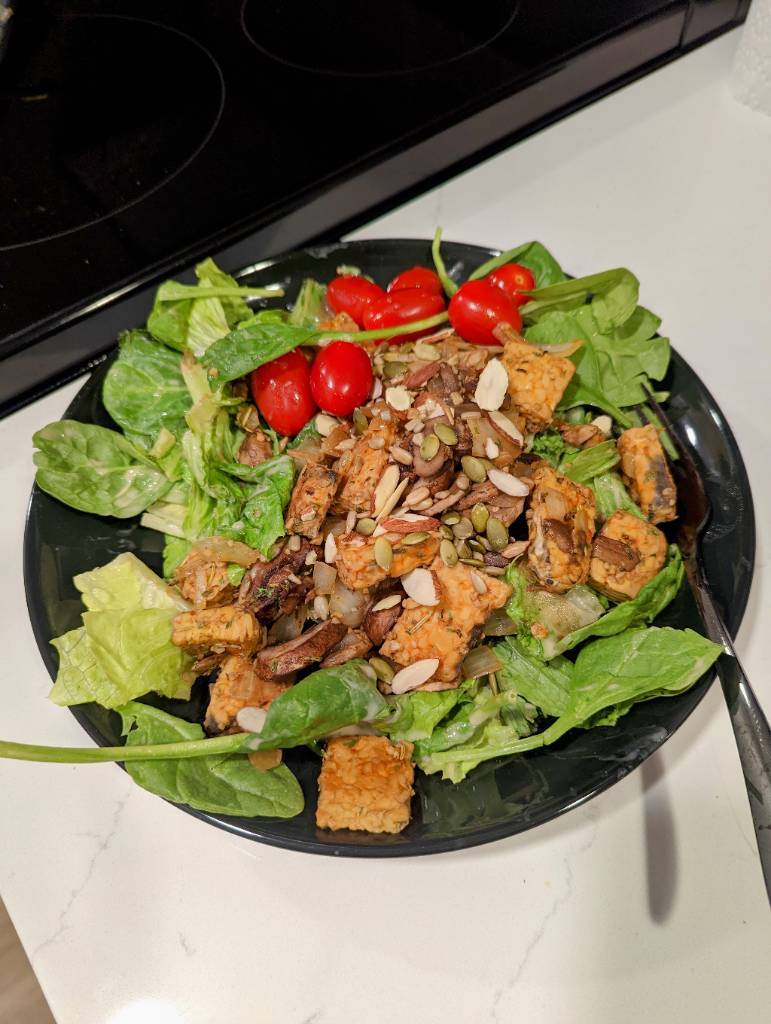
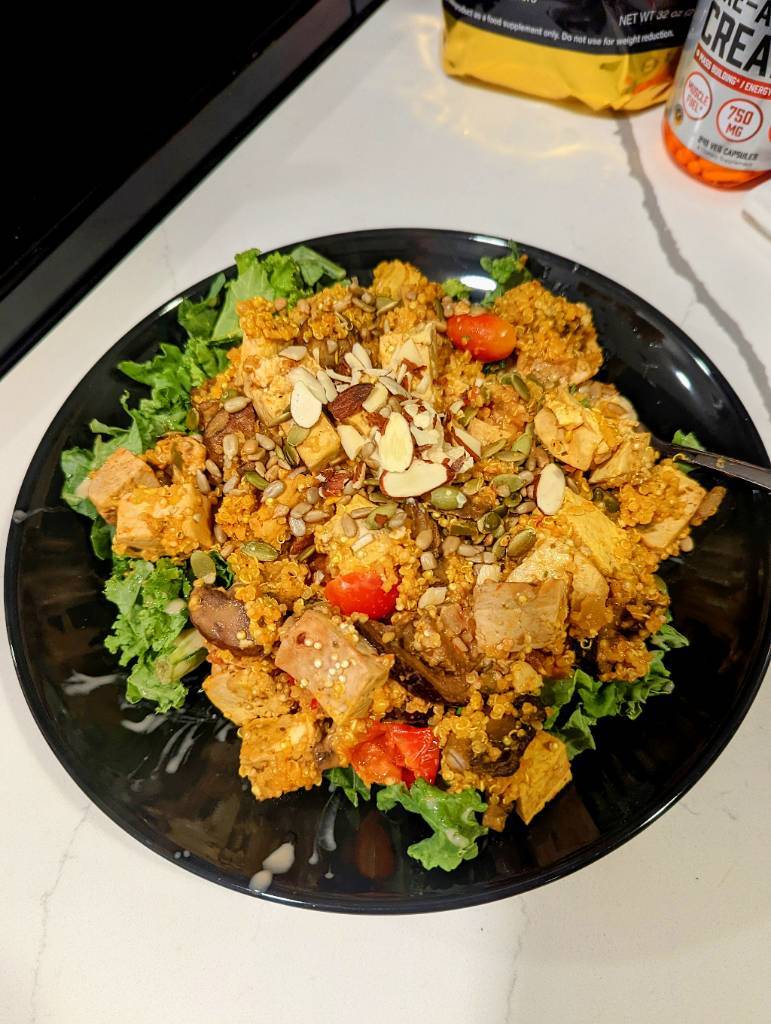
They take a pretty long time to make and they take a LONG time to eat. Typically a plate of these would be 1-1.5kg, with 50-60g of fiber. So not only do I get a sore jaw after each dinner, the bloating can be really bad sometimes!
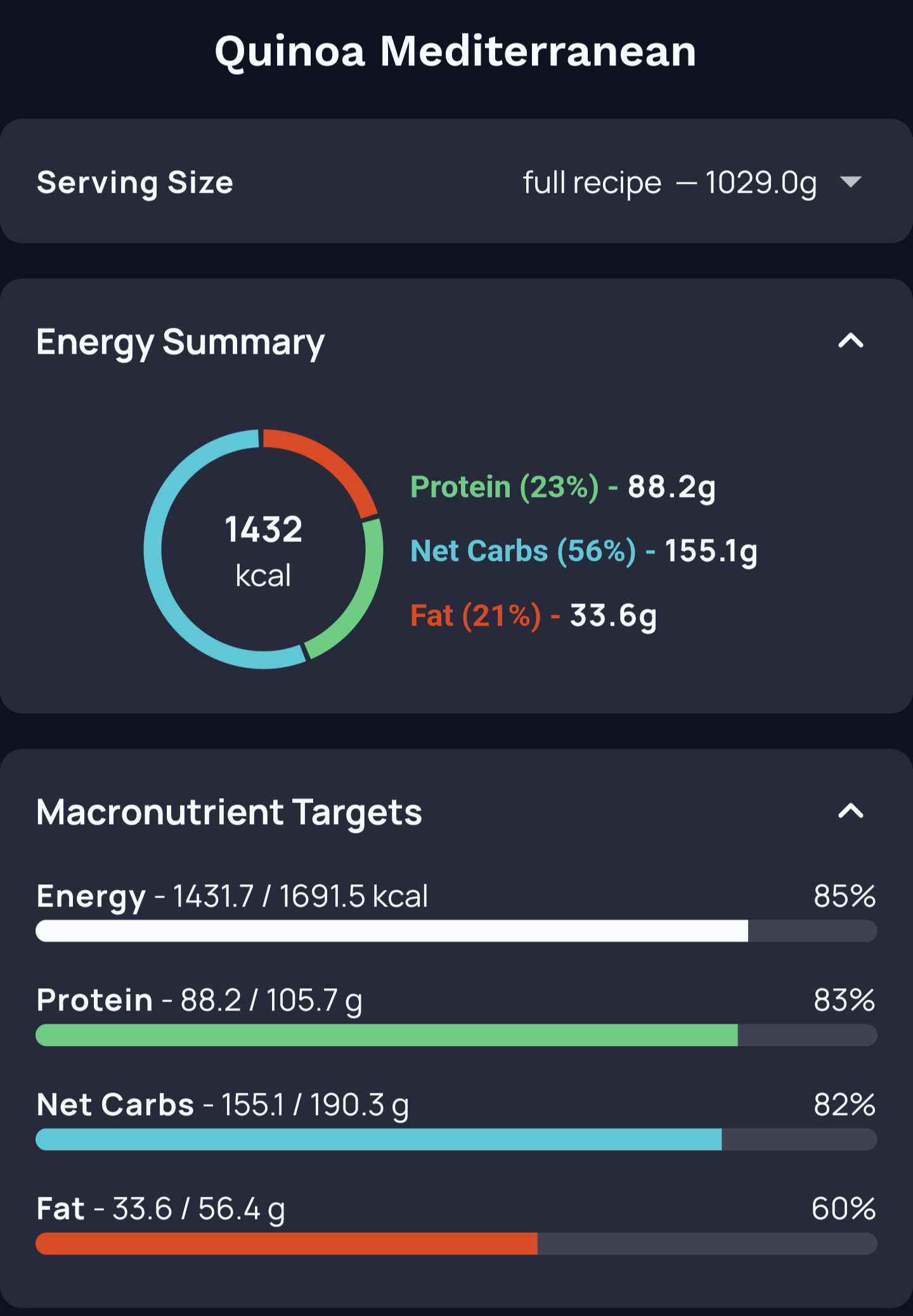
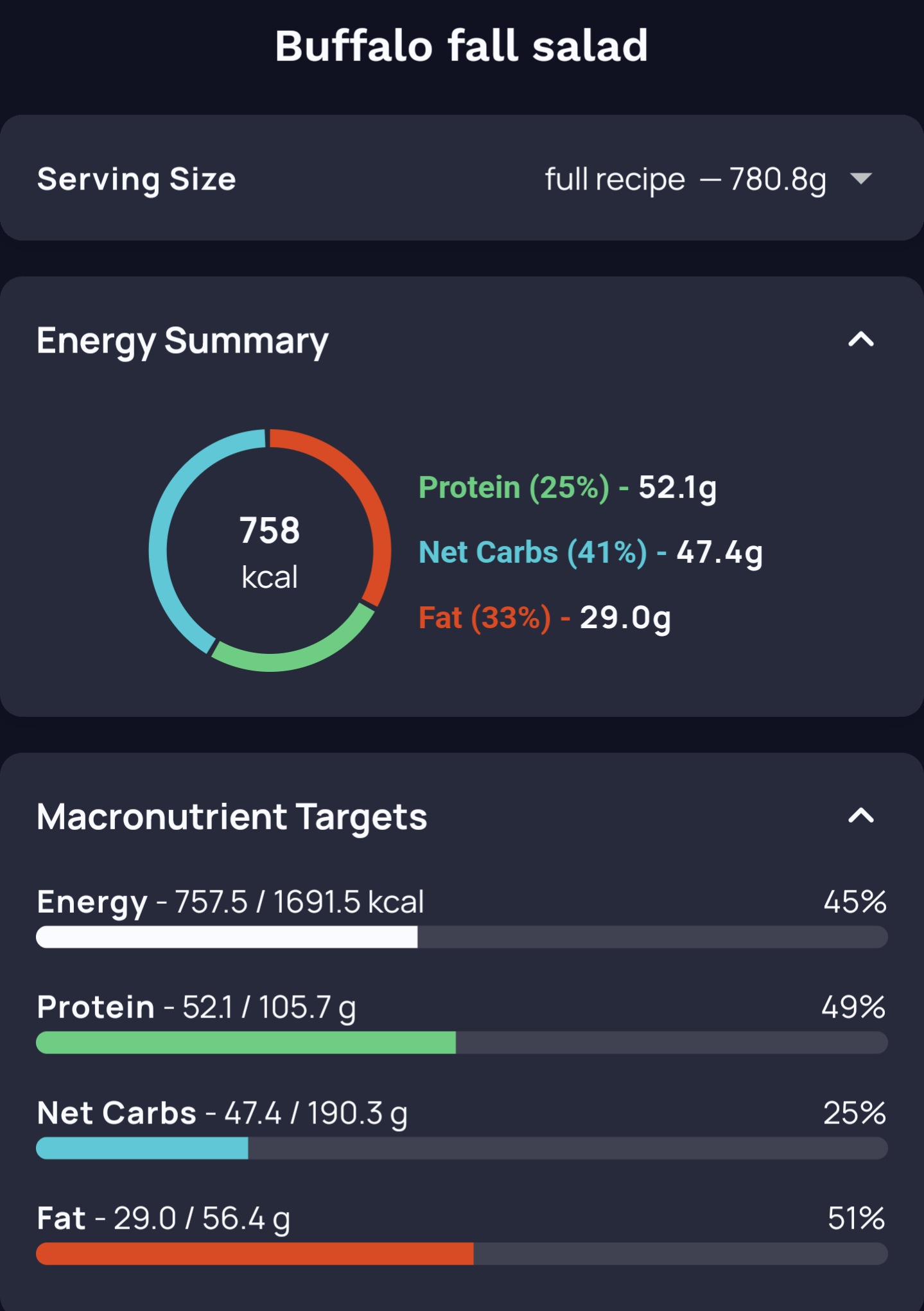
So the IF problem is mostly logistic, I just can’t get that volume of food inside me within that time window! I was eating less than what I need to grow, so of course I wasn’t growing. This is why I wasn’t seeing much growth during the first few months into lifting.
Final verdict
I am not going to IF because I just can’t eat enough within that window given my circumstances. But once I grew to my desired size and started the cut, I would absolutely do IF again to help with recompositioning. At this point, I am sticking to my meal plan, which is pretty much the same food everyday. I spend 2 hours every Sunday to prep for the week’s lunch and dinner, and make the protein chia seed pudding every night before.
Breakfast: 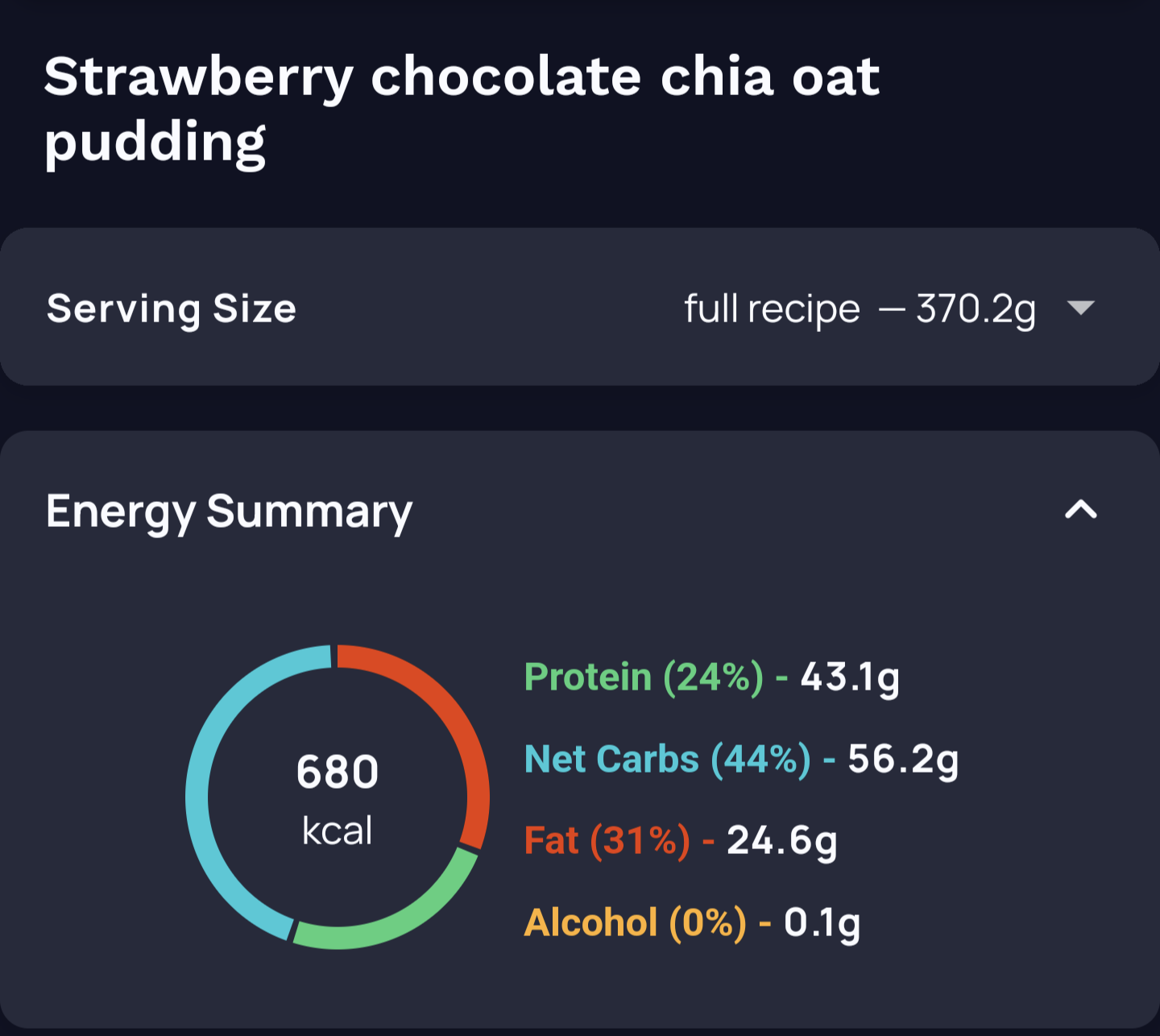
Lunch: 
Dinner: 
The finished prep! 
I save a lot more time doing this and I’m seeing great results in the gym!
